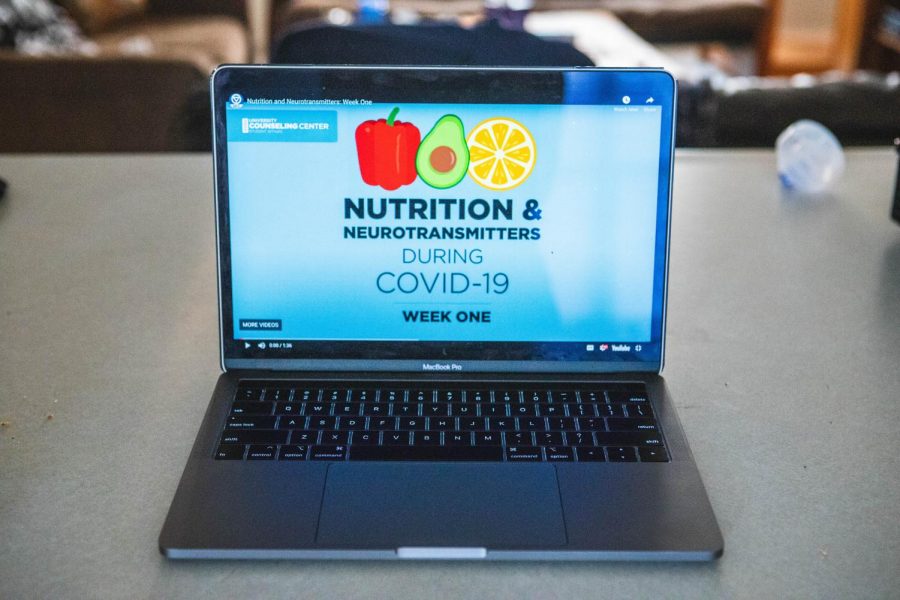Online workshops seek to help students be proactive with mental health
Oct 12, 2020
This year, Grand Valley State University students are faced with a much more isolated learning and social environment. Most classes have moved to an online setting and so have most GVSU clubs, greatly reducing the opportunities students have to meet face to face with one another. The recent ‘Staying in Place’ order, and the current ‘Staying Safe’ county health orders have also contributed to keeping students apart.
“The challenges facing the student body are very unique and feelings of isolation can be very common,” said Nicholas Debernardi, Coordinator of Career Assessment and Programming at the GVSU Counseling Center.
However, Debernardi wants students to realize that they are not alone, and that resources exist for them at the Counseling Center. Short-term individual and long-term group therapy are provided at no cost to currently registered GVSU students.
The Center offers drop-in counseling services daily for urgent/emergency situations and coordinates with GVPD to provide after-hours services in the event of a crisis. In addition to those services, the Counseling Center has also recently launched a series of nine virtual workshops, to help students be proactive with their mental health.
“It was important for us to find new ways to disseminate mental health information and help connect students to resources,” Debernardi said. “These workshops allow students to access such information in the privacy of their own space and to work at their own pace.”
The ‘Healthy Lakers’ virtual workshops, which can be found on the Counseling Center’s website, cover a variety of topics from anxiety management during COVID-19 to self-compassion and stress management.
“These virtual workshops have information and resources that can be helpful for any student, and being proactive of your mental health is important,” Debernardi said. “There are several topics covered in these workshops that speak to specific symptoms or areas of wellness. I would definitely recommend browsing the various workshops to see which mental health and wellness workshop relates to an area of concern and/or personal goal.”
The workshops are not just meant for students who need a little help. They can also help healthy students work towards being more proactive about their mental health, and help them with their goals in daily life.
The workshop ‘Nutrition and Neurotransmitters during COVID-19,’ could prove especially helpful to many students. It seeks to help students who are interested in improving their mental wellness, physical health and academic performance through a better understanding of nutrition. It explores topics such as general nutrition foundation, and which food habits promote positive moods and healthy intentions.
The ‘Stress Management’ workshop seeks to equip students with the tools and skills necessary to face situations that make them feel stressed. While its primarily goal is to provide a holistic and preventative approach in addressing stress-related to COVID-19, the tools and approaches it provides can be applied to any situation.
But for students who are experiencing an emergency, these workshops are not meant as a substitute to proper counseling. The Counseling Center is always open for students experiencing an emergency, and they are encouraged to contact the Center if they feel they should.
























